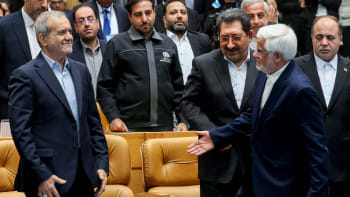Private sector can play a crucial role in regional connectivity: analysts
The private sector should play a vital role in greater regional integration for more trade under the South Asia Free Trade Agreement (Safta), business leaders said yesterday.
The volume of trade among the eight members of South Asian Association for Regional Cooperation (Saarc) is one of the lowest among global regional trade agreements like Asean, EU and Nafta, they said.
The Safta is the least used platform for regional trade because of the unwillingness of political leaders in the South Asian nations, they said at a roundtable on 'Unleashing South Asia: imperatives for action' at Sonargaon Hotel, Dhaka. Saarc Chamber of Commerce and Industry (Saarc CCI) organised the roundtable that was attended by businessmen, leaders from chamber and trade bodies, diplomats, government high-ups and trade analysts from the eight nations.
Suraj Vaidya, president of Saarc CCI, said more than 95 percent people of the South Asian countries want the success of Saarc.
A negligible number of people may have links with terrorism and for them, the whole region is suffering from insecurity and low trade among the nations, he added.
Despite having potential, trade among the Saarc nations is low for poor connectivity in roads, railways and waterways, he said.
Most of the barriers to trade are manmade in this region and those can be resolved through discussion, said Salman F Rahman, former Saarc CCI president and adviser to the prime minister for private sector and business. The Saarc nations have been performing well as individual nations, he added.
“We need to implement the Safta immediately. We should not spend another 30 or 40 years or even 100 years to make this platform effective for more trade,” said Jalaluddin Saeed, a businessman from Afghanistan.
M Tamim, a former adviser to the caretaker government, said the energy trade is vital among the Saarc nations; if this trade is left to the governments, it will not work well.
“If India can do energy trade with Nepal, why not Bangladesh?” he said. Bangladesh has been importing 600 megawatts of electricity from India, he said, adding that energy trade is taking place bilaterally.
“We are considering a regional electricity market and a regional grid,” Tamim said. The chamber leaders can negotiate with the governments to help the plan materialise, he added. Sanjeev Nandwani, former additional director general of Foreign Trade and Development Commissioner of India, called for stable tariff rates for trade among the Saarc region.
Kithmina Hewage, research officer of Institute of Policy Studies of Sri Lanka, said more than 90 percent trade takes place through India in the Saarc region. So India should play an important role in making the Saarc an effective trade platform, he said.
Shafquat Haider, executive committee member of Saarc CCI, moderated the programme.

 For all latest news, follow The Daily Star's Google News channel.
For all latest news, follow The Daily Star's Google News channel. 



Comments